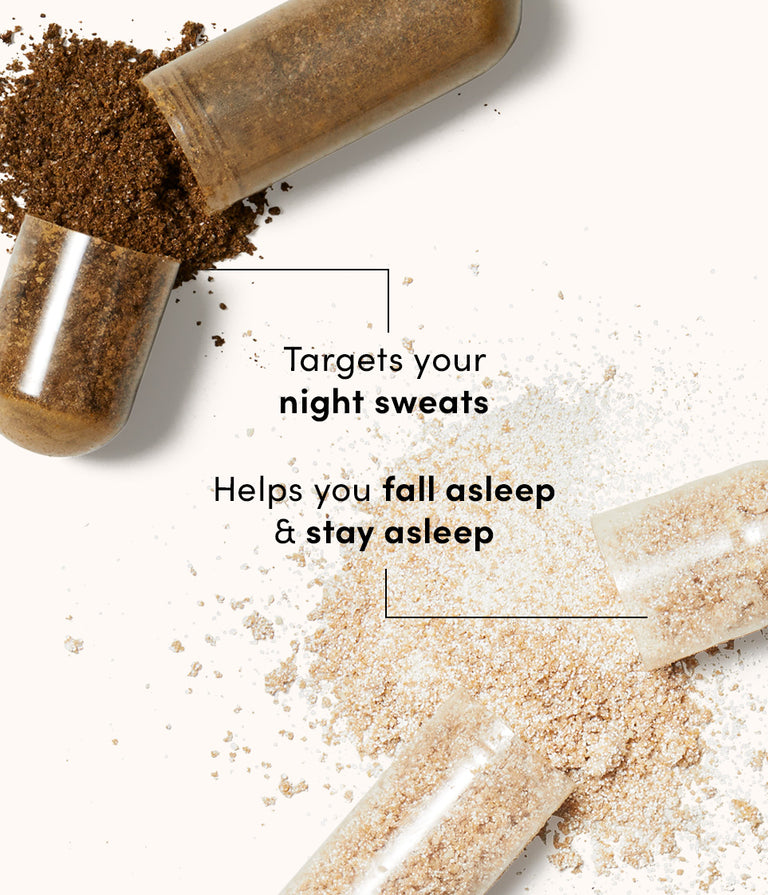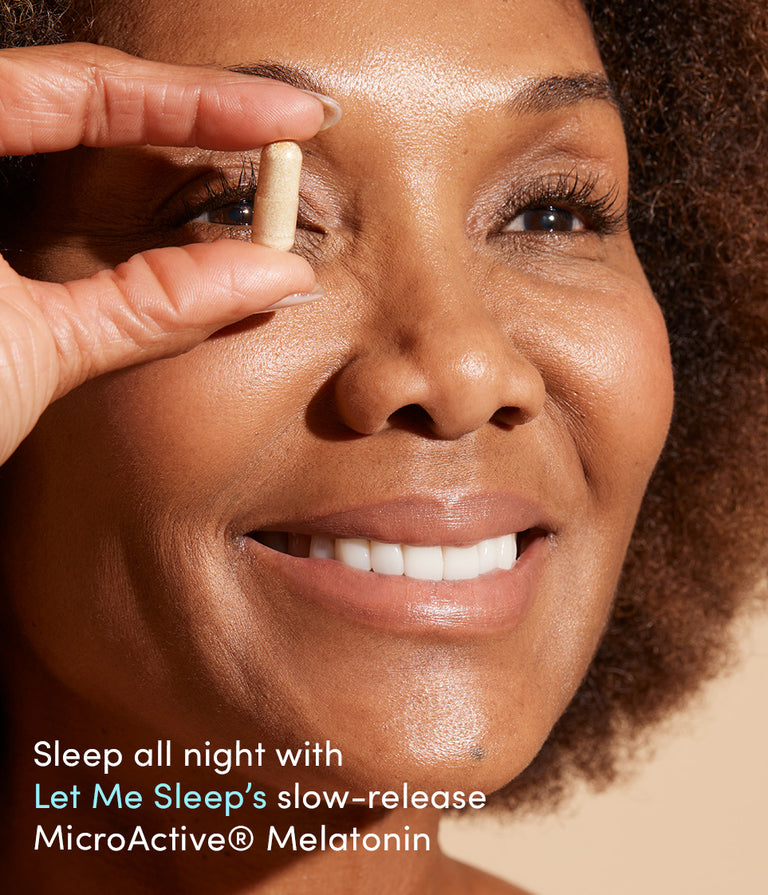By Womaness Editors 3-Minute Read

There’s no doubt about it: getting sleep in any phase of menopause is no picnic. There are the night sweats and joint pain. Sometimes there’s snoring. But there’s also the stress, anxiety, and pressures of this phase of life that easily keep you up at night (um, can you say “sandwich generation”?).
Sleep rejuvenates us in a million ways, which is what you need right now. A smarter sleep routine is often the ticket to a more restful and restorative night, so what better routine to emulate than one of a sleep doctor?
We asked Dr. Shelby Harris, board-certified clinical psychologist in behavioral sleep medicine and author of "The Women's Guide to Overcoming Insomnia," how she does it. Here’s the run-down of both her morning and evening routines, because the morning, according to Dr. Harris, is where good sleep really begins.
MORNING ROUTINE
Keyword: "Consistency"
For me, sleep begins in the morning. That's where I'm really consistent.
I'm adamant about getting up at about the same time every morning, about 5:45am. I'm an early bird because I run in the mornings.
Seven days a week, I get up, have a glass of water, do a quick meditation, and go and get as much bright light as possible.
That light and a consistent wake-up time help to set your body's clock so that you're going to go to bed around the same time at night.
EVENING ROUTINE
AKA, Time to "Tech Out"
My evening routine is about a half-hour to an hour, if I have the time.
I'll watch TV for the first half-hour before my wind down (not in my bedroom, though I do have a TV in my bedroom—which shocks some of my patients—but it’s only for times like if I have a cold and don't want to leave bed and infect the rest of my family).
Then I tech out. I turn off all electronics. I don't sit on my phone right at bedtime. The phone is not in my room; I don’t need to use it as an alarm clock. I used to use my alarm clock from high school, but now I have a Hatch Alarm with music. It also has a dimming light and it helps to set my bedtime routine.
I've been working on my flexibility a bit more, so I'll then stretch (I love stretching at night). I do deep breathing and a little bit of meditation with some music in the background.
Then I read a little bit and I go to bed. I don't put much thought into it. And I don't spend a lot of time in bed until it's time to get into bed.
A FEW EXTRA TIPS FROM DR. HARRIS
-
I have a 12-year-old and a six-year-old, so for a number of years a lot of my life has been about little kids. I'm very strict about getting them on a good schedule—because if you set your family on a good schedule, it'll help you to be on a better schedule. That's where it has to start.
-
I'm a big fan of journaling, which I sometimes do during my wind-down routine. Writing down things you need to do that are on your mind before bed (or if you wake up at night) can be very, very helpful.
-
If you're having trouble sleeping, don't ignore it. And don't just assume it's part of aging. There are really effective treatments. Please talk to your doctor because we really can treat it.
Psst: Looking for more sleep solutions? We've got you! Try Let Me Sleep now.
More For You
What's Happening Here? Sleep Issues & Insomnia
Sleeplessness in Menopause: What to Know
Ask a Sleep Expert: "How does better sleep lead to better skin?"




